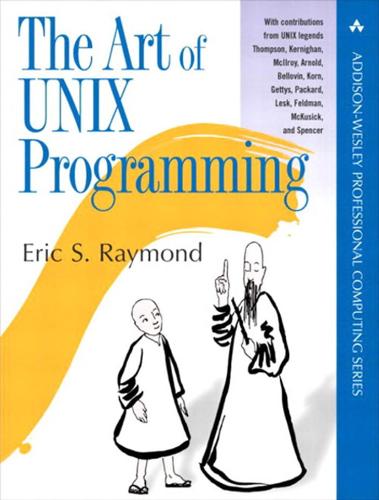
The Art of UNIX Programming
by
Eric S. Raymond
Published 22 Sep 2003
All tend to evolve in accordance with the Law of Software Envelopment, aka Zawinski's Law: “Every program attempts to expand until it can read mail. Those programs which cannot so expand are replaced by ones which can”. Jamie Zawinski, inventor of the Law (and one of the principal authors of the Netscape and Mozilla Web browsers), maintains more generally that all really useful programs tend to turn into Swiss Army knives. The commercial success of large, integrated application suites outside the Unix world tends to confirm this, and directly challenges the Unix philosophy of minimalism. To the extent Zawinski's Law is correct, it suggests that some things want to be small and some want to be large, but the middle ground is unstable.
…
This is “as simple as possible, but no simpler”, but it focuses attention on the choice of shared context. It applies not just to frameworks, but to applications and program systems. It is, however, all too easy to get sloppy about how large your shared context needs to be. The pressure behind Zawinski's Law is the tendency of applications to want to share context for convenience. It's easy to end up carrying around too much weight, too many assumptions, and to write programs that are over-complex, bloated, and huge. The paradigmatic example in the 1990s was the way that the mailto: URL induced the growth of huge mail clients embedded in Web browsers.